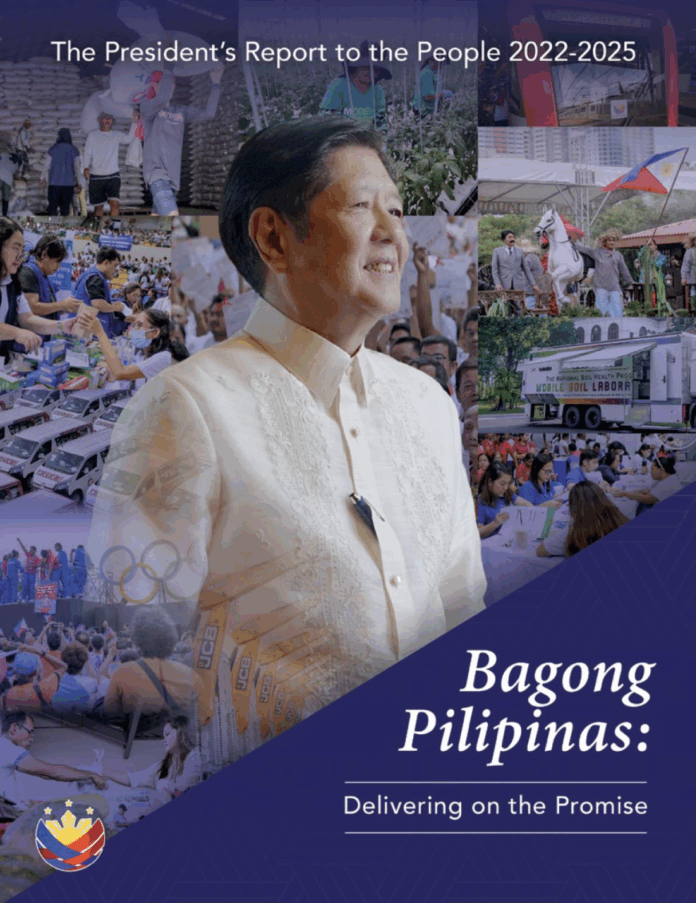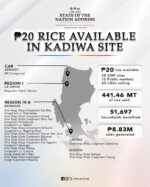President Ferdinand Marcos Jr. pledged on Monday to dedicate the final three years of his administration to better serving the Filipino people, particularly in response to their dissatisfaction, as evidenced by the poor performance of his candidates in the May elections.
“Malinaw sa akin ang mensahe ng naging resulta ng halalan: Bigo at dismayado ang mga tao sa pamahalaan lalo na sa mga pangunahin serbisyo. Ang leksyon sa atin ay simple lamang—kailangan pa natin mas lalong galingan, kailngan pa natin mas lalong bilisan,” Marcos said during his fourth State of the Nation Address before Congress. (The message from the last election is clear: Filipinos are frustrated and disappointed with the government, especially in the delivery of essential services. The lesson is simple—we must strive to do better, we must step up our efforts.)
While he acknowledged that his administration has shown strong economic performance, citing decelerating inflation, continued economic growth, high investor confidence, and more jobs, Marcos stressed that these statistics matter little to those still struggling with unemployment and hunger.
“Hindi na ako magpapaligoy-ligoy pa. Maayos na hanapbuhay talaga ang mabisang pantiyak na laban sa kahirapan at gutom,” Marcos said firmly. (I won’t beat around the bush: A well-paying job is the most effective solution to combat poverty and hunger.)
President Marcos directed the Department of Labor and Employment, along with other government agencies, to find ways to increase employment opportunities.
In his discussions with foreign investors, the President’s message was clear: “The Philippines is ready. Invest in the Filipino.” He emphasized the country’s workforce, describing Filipinos as “dependable, hardworking, innately skilled, adaptable, and possessed with a heart for service.”
To address hunger, Marcos announced funding to sustain the P20 rice program and ensure broader access to affordable rice next year. He warned rice traders who manipulate prices or exploit farmers, threatening them with stiff fines and long prison terms, labeling such actions as economic sabotage—a crime that carries stiff fines and long jail term.







